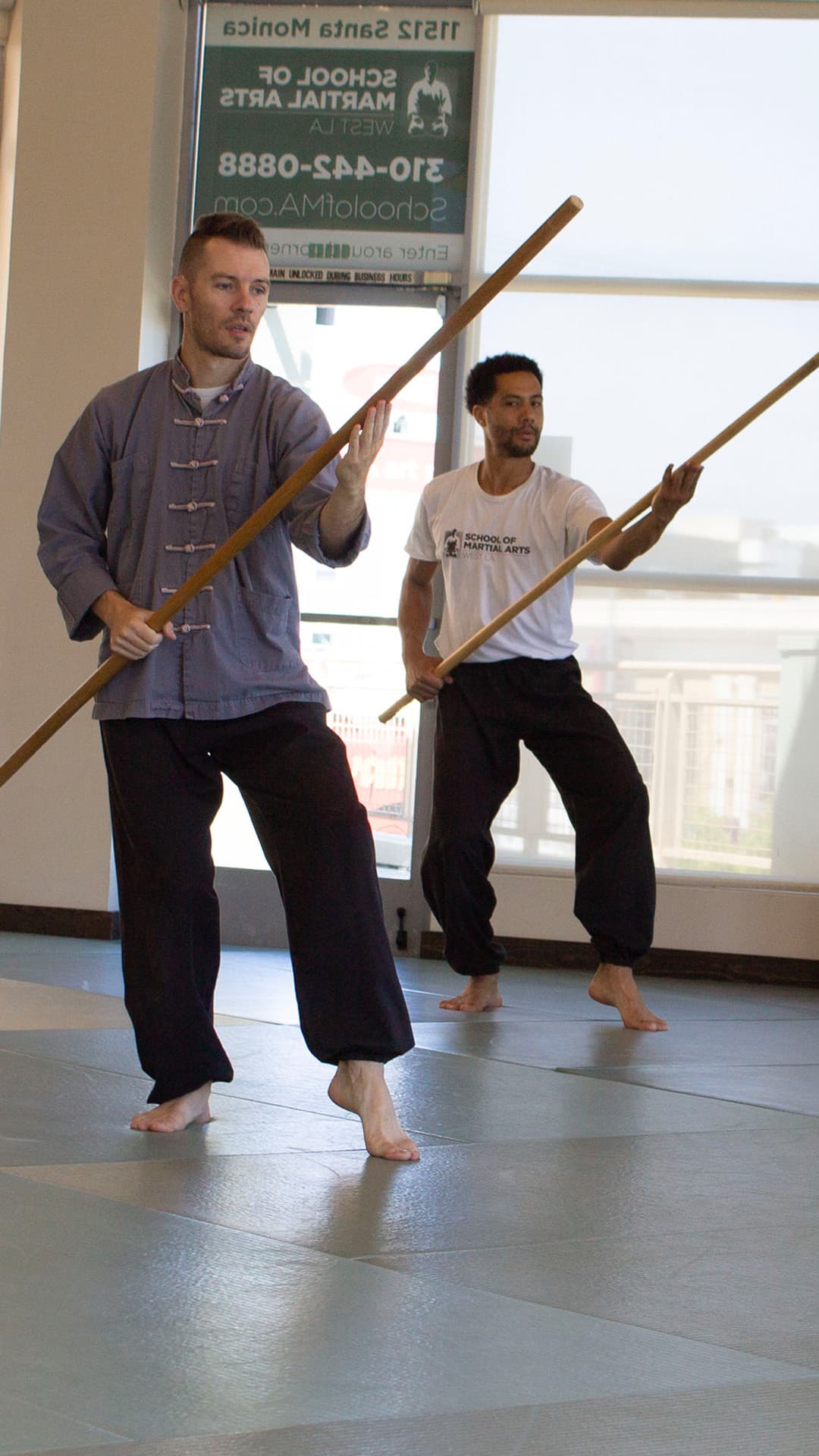I just got one of the worst injuries of my life. It’s not really that bad (possibly a partial rotator cuff tear), but since I’m quite mindful, in general I avoid injuries. This one, like pretty much all my serious injuries, happened off the mats, not practicing martial arts.

I was swimming in the ocean near the break over Labor Day weekend and the waves were serious. Tall, over my head. I was having fun flowing in and out with the water until one particularly violent wave caught me off guard and threw me off balance. As I was catching myself, I extended my arm and the wave hit it in a weird way, tweaking my shoulder. It was a complete fluke. I was immediately aware of the damage and got out of the water. Now I have another reason that I hate getting in the ocean (besides the cold).
I’ve been injured many times before, but only a handful of these have actually made it hard for me to practice martial arts. I returned to the dojo to teach class yesterday and found it quite difficult to demonstrate technique even slowly. So I did what I do best: stand still and yell. When it came to advanced kung fu, I used my injury as an opportunity. We did one of my favorite drills: sparring with an injury. Everyone pretended that one of their limbs was injured and didn’t use it for a round. Most students switched between different arms and legs, but I just tucked my right arm to my side and left it there. It makes sparring much more difficult, but the twist makes us even more mindful.
Nobody, even me, likes being injured. Yet where I like to turn an injury into an opportunity to practice more mindfully and change things up, most people decide to just stay home. Now, in fairness, sometimes that’s the right thing to do. If your injury makes you unable to walk, you should stay home and heal up. But if you can physically make it to the dojo, we can find something for you to do. Today, I did Tai Chi. If I move slowly enough and make sure I’m relaxing and turning my body the way I’m supposed to, Tai Chi feels great. I had almost no pain.
 There’s really nothing unique about my body that makes me able to practice with an injury. It’s a function of attitude. Sometimes when we do a particularly hard class I like to talk about the difference between pain and suffering. Physical pain is a necessary part of life. Anybody who lives for any length of time experiences it. Suffering, however, is optional. Suffering happens if I think about my shoulder injury and wonder what I did to deserve it. Or I wonder how long I’ll be hurt for, or if I’ll ever get better. All of this uncertainty and taking things personally is what turns physical pain into mental pain, or suffering. I just forgo that line of thinking and focus on what I can do with my body, including relaxing and breathing.
There’s really nothing unique about my body that makes me able to practice with an injury. It’s a function of attitude. Sometimes when we do a particularly hard class I like to talk about the difference between pain and suffering. Physical pain is a necessary part of life. Anybody who lives for any length of time experiences it. Suffering, however, is optional. Suffering happens if I think about my shoulder injury and wonder what I did to deserve it. Or I wonder how long I’ll be hurt for, or if I’ll ever get better. All of this uncertainty and taking things personally is what turns physical pain into mental pain, or suffering. I just forgo that line of thinking and focus on what I can do with my body, including relaxing and breathing.
An injury might set you back in your martial arts practice, but that setback is often more mental than physical. My advice is always to listen to your body (and your doctor), but do what you can do safely. If you don’t know Tai Chi, you can always practice joint locks, grappling, stretch, or even meditate. Your body will eventually heal, but your mind can keep going.




Destiny
Well said, Sifu Scott! ❤️???????
Destiny
Well said, SifuScott! ❤️???????
Kyoshin Kayo
Injuries are part of life when you are practicing martial arts. If there are some major injuries then let them heal before start practicing martial art again. Otherwise, you cause some serious damage to your body
SifuScott
Yes, the physical injury must be taken care of, but the mental suffering does not need to accompany it!